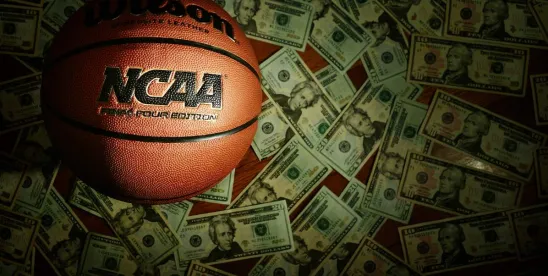I’ve been listening to Deja Kelly’s fascinating podcast, NILosophy. Kelly is a lights-out women’s basketball player, and a talented broadcaster. She and her guests – often but not exclusively young women – discuss the changing college sports world under NIL. And many times during these interviews, I have been struck by how quickly these young athletes have to grow up, and the sophisticated adult decisions they are called upon to make.
Many of these decisions have legal implications, but very few collegiate athletes have any legal training. Therefore, I wanted to use this post to highlight some common scenarios where athletes may benefit from legal advice in a NIL collegiate world.
This is particularly true for female college athletes, since they are less likely to participate in direct revenue-sharing at high levels, and equally if not more likely to find outside NIL deals.
First, I’d like to note that traditional practicing lawyers are not agents (although many agents actually are lawyers, though often not actively practicing law). Sports agents typically focus on securing commercial opportunities for their athletes. Attorneys, on the other hand, protect and secure their clients’ legal rights.
Attorneys are also different from financial advisors, whose focus is generally on the strategic investment of client funds. However, attorneys can provide an independent check on agents and/or investment advisors, and have heightened confidentiality and fiduciary duties to their athlete clients. Moreover, most sports attorneys bill by the hour, rather than taking a percentage of their clients’ earnings. Consequently, a contract review or similar analysis can be accomplished in a short amount of time, confidentially, with maximum benefit to the client.
Below is a short list of issues that collegiate athletes may face, which might benefit from legal advice. In short, legal issues are often confronted any time a large amount of money comes in or goes out of an athlete’s portfolio, as follows:
- NIL agreements – including fully understanding the athlete’s obligations and the meaning of potentially murky reputational or behavioral clauses;
- Agent or investment advisor agreement review – including ensuring that the costs to the athlete are standard, market, and fair;
- Transfer opportunities – including understanding their impact on existing revenue-sharing and NIL agreements;
- IP branding, trademark, and other protections – including protecting words, logos, and phrases associated with the athlete;
- Cease and desist letters – to curb unwanted or defamatory online activity;
- Immigration issues – for athletes and their families, including ensuring that athletes can legally be compensated for play in the United States;
- Business formation – athletes are businesspeople! Attorneys can assist with setting up business entities to maximize earnings and minimize potential liability;
- Real estate purchases – these are inherently legal agreements; athletes should be well protected;
- Other large purchases or sophisticated investments;
- Gifts to family members, etc. – including making sure that they comply with applicable tax laws;
- Charitable foundation formation, partnerships, and assets – athletes often want to give back to their communities, but need to be legally protected while doing so;
- Sports camps – athletes often run sports camps for youth in their communities, but also need to ensure they are legally protected from accidents, etc.




 />i
/>i
